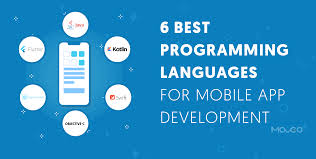Exploring the Impact of Innovative Technologies on Society: A Journey into the Future
The Impact of Innovative Technologies on Society
Technological advancements have always played a significant role in shaping the world we live in. From the invention of the wheel to the development of artificial intelligence, innovative technologies have continually transformed how we interact with our environment and each other.
Today, we are witnessing a rapid pace of innovation across various fields, including healthcare, communication, transportation, and more. These innovative technologies are not only revolutionizing industries but also impacting society as a whole.
Enhancing Efficiency and Productivity
One of the key benefits of innovative technologies is their ability to enhance efficiency and productivity. Automation, machine learning, and robotics are streamlining processes in manufacturing, agriculture, and service industries, leading to increased output and reduced costs.
Improving Quality of Life
Innovative technologies in healthcare are improving the quality of life for millions of people around the world. From precision medicine to wearable devices that monitor health metrics, these advancements are enabling early detection and personalized treatment options.
Connecting People Globally
The rise of communication technologies such as social media platforms and video conferencing has transformed how we connect with others. These tools have made it easier for people to collaborate across borders, share information instantaneously, and build global communities.
Safeguarding the Environment
Innovative technologies are also playing a crucial role in safeguarding the environment. Renewable energy sources like solar power and wind turbines are reducing our dependence on fossil fuels, while smart grids and energy-efficient buildings are promoting sustainability.
Challenges and Considerations
While innovative technologies offer numerous benefits, they also present challenges that society must address. Issues such as data privacy, cybersecurity threats, job displacement due to automation, and digital divide need careful consideration to ensure that everyone can benefit from these advancements.
In Conclusion
Innovative technologies have the power to transform our world for the better. By embracing these advancements responsibly and ethically, we can create a future where technology enhances human potential while preserving what makes us uniquely human.
Exploring Innovative Technologies: Key Questions and Insights
- What are the latest innovative technologies?
- How do innovative technologies impact businesses?
- What are the potential risks of adopting new innovative technologies?
- How can individuals stay updated on emerging innovative technologies?
- Are there ethical concerns surrounding the use of innovative technologies?
- What role do governments play in regulating innovative technologies?
What are the latest innovative technologies?
The question “What are the latest innovative technologies?” is a common inquiry that reflects the curiosity and eagerness to stay updated on cutting-edge advancements across various industries. In today’s rapidly evolving technological landscape, some of the latest innovative technologies include artificial intelligence (AI) and machine learning, Internet of Things (IoT), blockchain, quantum computing, 5G networks, augmented reality (AR) and virtual reality (VR), autonomous vehicles, and sustainable energy solutions. These emerging technologies hold the potential to revolutionize how we live, work, and interact with the world around us, driving progress and shaping the future in unprecedented ways. Stay informed about these developments to harness their transformative power and adapt to a digitally-driven world.
How do innovative technologies impact businesses?
Innovative technologies have a profound impact on businesses, revolutionizing the way they operate and compete in the market. From streamlining internal processes and enhancing productivity to enabling new business models and reaching wider audiences, innovative technologies offer businesses unprecedented opportunities for growth and success. Embracing these advancements can give companies a competitive edge, improve customer experiences, and drive efficiency and profitability in an ever-evolving market landscape. Businesses that harness the power of innovative technologies effectively can adapt to changing trends, stay ahead of the curve, and position themselves for long-term success in a dynamic and digital-driven economy.
What are the potential risks of adopting new innovative technologies?
When considering the adoption of new innovative technologies, it is crucial to acknowledge and address the potential risks that come with these advancements. Some of the key risks include data privacy concerns, cybersecurity vulnerabilities, job displacement due to automation, and the widening digital divide. Ensuring that adequate measures are in place to safeguard sensitive information, mitigate cyber threats, retrain displaced workers, and bridge the gap in access to technology is essential for a smooth and responsible integration of innovative technologies into society. By proactively identifying and managing these risks, businesses and individuals can navigate the challenges associated with adopting new technologies while maximizing their benefits.
How can individuals stay updated on emerging innovative technologies?
To stay updated on emerging innovative technologies, individuals can utilize various resources and strategies. Subscribing to tech news websites, following industry influencers on social media platforms, attending tech conferences and webinars, joining online forums and communities dedicated to technology trends, and enrolling in online courses or workshops are effective ways to stay informed. Additionally, networking with professionals in the field, exploring research publications, and experimenting with new technologies through hands-on projects can help individuals stay abreast of the latest advancements in innovative technologies. By actively engaging with these resources and continuously seeking knowledge, individuals can enhance their understanding of emerging technologies and adapt to the rapidly evolving tech landscape.
Are there ethical concerns surrounding the use of innovative technologies?
The question of whether there are ethical concerns surrounding the use of innovative technologies is a crucial one in today’s rapidly evolving digital landscape. As technology continues to advance at an unprecedented pace, ethical considerations become increasingly important. Issues such as data privacy, algorithmic bias, automation’s impact on employment, and the ethical use of artificial intelligence are just a few examples of the complex challenges that arise with the adoption of innovative technologies. It is essential for individuals, businesses, and policymakers to address these ethical concerns proactively to ensure that technology is developed and utilized in a way that benefits society as a whole while upholding fundamental values and principles.
What role do governments play in regulating innovative technologies?
Governments play a crucial role in regulating innovative technologies to ensure their safe and ethical implementation. Regulations help address potential risks associated with new technologies, such as data privacy concerns, cybersecurity threats, and societal impacts. By setting standards and guidelines, governments can promote responsible innovation while protecting the interests of the public. Additionally, regulatory frameworks can foster a level playing field for businesses and encourage investment in research and development. Balancing innovation with regulation is essential to harnessing the full potential of emerging technologies for the benefit of society as a whole.






